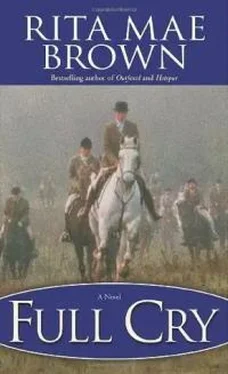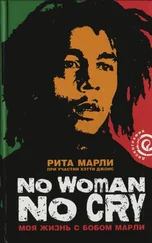She trudged up the rise to the walnut tree. The cold and snow stung her rosy cheeks.
An old cowboy hat kept the snow out of her eyes. As she approached Inky’s den, she whistled. She didn’t want to frighten the fox, who, if asleep, might not have heard her.
Inky, who had popped back into her den, stuck her head out.
“Good morning, Inky.” Sister dearly loved her foxes, but none so much as this one.
“Morning.” Inky chortled, a low sound in her throat.
“Here’s some straw in case you need to sweeten your bedding. I’m going to put the kibble right by your main entrance here. It’s in this plastic canister, which will keep some of the snow away, and Inky, I liberally drenched it in corn oil. You love that.”
A round hole, paw sized, had been cut from the bottom of the canister so Inky could pull out food.
“Thank you.”
Sometimes when Sister walked alone, no hounds, no house dogs, Inky would walk with her, ten or fifteen yards to the side. They’d reached an accord, these two females, one born of affection and solitude.
Inky didn’t much mind the Doberman, Raleigh, but that damned Rooster, the harrier, felt compelled to put his nose to the ground and follow her scent, talking all the while. As a hound, Rooster couldn’t help but show off. Much as he irritated Inky, she knew old Rooster had suffered sadness in his life. His master, Peter Wheeler, a handsome, vital man in his eighties, had died two years ago, bequeathing Rooster to Jane—once his lover—and his entire estate to the Jefferson Hunt Club. Sister lavished care on Rooster, but he still missed his “Pappy,” as he thought of Peter.
The one Inky really detested was Golliwog, the calico cat, whose airs plucked Inky’s last nerve. As a rule, felines feel they are the crown of creation. Golly took this hauteur to extremes. Sometimes when Inky would visit the kennels to chat with Diana, a particular favorite, Golliwog would saunter by, nose in the air, always no hello. Then she’d buzz around the corner toward Shaker’s dependency and emit an earsplitting shriek, “Fox at the kennels!” This would rouse the entire pack, who would then rouse Shaker. Inky would skedaddle out of there. Golly was a royal pain.
Sister breathed in, the air heavy, the sky darkest pewter. Inky put her entire head out of her den. Corn oil smelled wonderful. She wasn’t going to emerge totally though.
“You know, New Year’s Hunt is Thursday.” Wanting to reach down and pet the glossy head, Sister restrained herself. “Oh, what a hunt that always is. It’s the last of the High Holy Days, so everyone will be decked out in their finest, regardless of the temperature. The horses will be braided. Some of the field will be so hung over they’ll glow green.” She laughed. “But if they don’t make it, they are tormented until the next New Year’s Hunt by everyone else who pulled themselves together to brave all. Inky, I don’t know why people drink like they do. A glass of champagne or a good single malt scotch now and then, just one, mind you, but anything more,” she shook her head, “damned foolishness. Course, if people want to destroy their bodies, that’s their business, so long as they don’t destroy mine. I look at you and Athena,” she mentioned the huge horned owl who showed little fear of humans because she inspired fear in them, “and our other friends, and you all don’t wreck your bodies. I can’t decide if the human is genetically flawed or has created a society where the pressures are so fierce many folks can’t endure them without a little chemical help. Or maybe it’s both.”
“You all worry about death too much,” the prescient creature said, but it sounded like a soft yap.
Sister couldn’t understand, but she was a country girl, acutely attuned to animals. “Well, sugar, I’m off to feed the reds down by Broad Creek. And I am hunting on New Year’s, weather be damned. The snow will be over by tonight, the roads will be passable, and Tedi and Edward will plow out a field so everyone can park. The ground will stay frozen, too. That can be difficult.” She smiled at the beautiful orange–light hazel eyes looking up at her. “We’ll cast down by the covered bridge, so I don’t know which way we’ll go. Anyway, I don’t think you’ll be much bothered. And then, dear Inky, the dilettantes will hang up their spurs, winter will deepen, and the balls-to-the-wall gang will stay out. Or should I say the ovaries-to-the-wall? Oh, how I love those January, February, and early March hunts.”
“Sister, you’re looking well, and I wish you a Happy New Year.”
“Bye-bye, babydoll.” Sister turned, her tracks already half covered in snow, and returned to her bright red ATV.
Inky hopped out, reaching her paw in the canister hole to retrieve the delicious treat.
Sister drove back to the other end of the cornfield, where a rutted road ran into the farm road. It wasn’t plowed out. She would have a long walk to the red fox den. She shouldered a large canister. The two reds, Charlene and Target, lived together and produced many wonderful cubs, most of whom survived, thanks to the care bestowed upon them by Sister and Shaker.
She wormed the foxes on her fixtures once they were old enough—about four months—to ingest wormer. She would stuff freshly killed chickens or sprinkle it over kibble. She and Shaker wormed their foxes on the same schedule as the hounds, once a month, on the first except for whelping season.
When possible, the foxes were trapped and administered a rabies shot—no easy task. Trapping the same fox later for the booster wasn’t easy either, but they tried.
Sister and other Masters of Foxhounds did all in their power to ensure a healthy fox population, but most especially they struggled to break the rabies cycles, which spiked about every seven years. Luckily, foxes didn’t prove to be the vast reservoir of the rabies virus that skunks, silver-haired bats, and raccoons were, but they still came down with this horrible disease. Thanks to Sister’s efforts, the rabies incidence in foxes dropped. Townspeople never thanked foxhunters for their battle against rabies, a battle that benefited them and their pets, but then again, they didn’t know about it. It wasn’t in the nature of foxhunters to advertise.
The French had invented an oral rabies vaccine not yet available in the United States. Sister hoped it would come to the States soon because it would greatly help her and other foxhunters protect foxes. Trapping took skill and some sense. A fox will bite. If she could instead put a pill in chicken or ground meat, it would make Sister’s mission much easier.
The mile walk to Target’s den in the woods winded her. Pushing through the snow sucked up a lot of energy. She placed the canister by the den. Most likely neither Target nor Charlene would pop out and show themselves, but nevertheless they had a decent relationship with their human.
Rarely do a female fox and her mate cohabit. The male may help raise cubs, but he usually has his own place. Still, for whatever reason, these two got along famously, and Target lived with Charlene.
Sister mused on this. When one reads books about foxes or other wildlife, the information is usually correct. But in nature, as in human society, there are always exceptions that prove the rule. In truth, humans knew much less about foxes than about other animals. Considered vermin by state governments, they weren’t studied. The sheer adaptability of foxes—their high intelligence and omnivorous appetite— meant the fox could change quickly, do whatever it had to do to survive. Then, too, foxes didn’t read books about their supposed behavior. They were free to do as they pleased without fretting over breaking the norm.
Читать дальше












